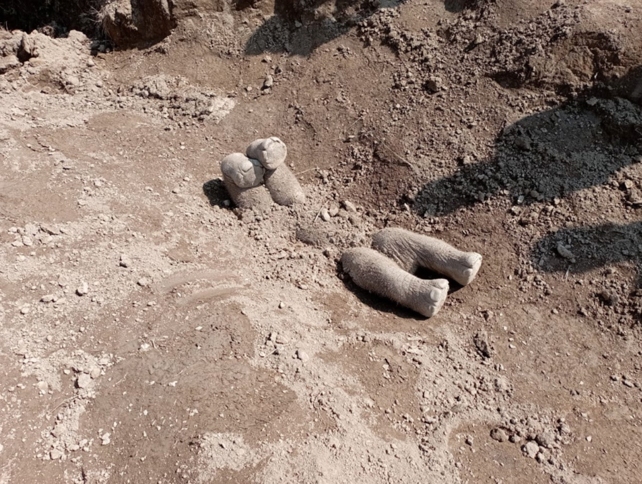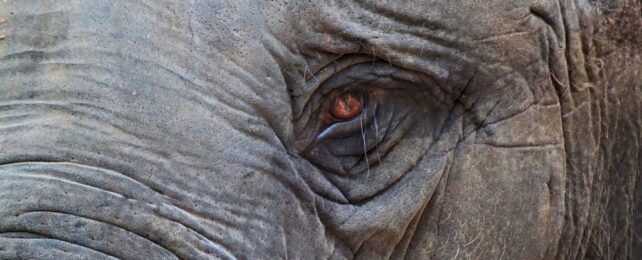Asian elephants loudly mourn and bury their dead calves, according to a study by Indian scientists that details animal behaviour reminiscent of human funeral rites.
Researchers identified five calf burials conducted by the giant mammals in the north of India's Bengal region in 2022 and 2023, according to the study published in the Journal of Threatened Taxa this week.
They found in each case that a herd carried the deceased calf by the trunk and legs before burying it in the earth with its legs facing upward.
"Through opportunistic observation, digital photography, fieldnotes, and postmortem examination reports, we suggest that the carcasses were buried in an abnormal recumbent style irrespective of the reasons for the calf's death," the study said.
Caution: Graphic photo of buried elephant calf appears below.
In one instance the herd loudly roared and trumpeted around the buried calf, the authors wrote.
The study found only calves are carried away for burial, owing to the "non-feasibility" of transporting heavier adult elephants by the rest of their herds.
Authors Parveen Kaswan and Akashdeep Roy said their research found "no direct human intervention" in any of the five calf deaths.
Clear footprints of between 15 and 20 elephants were observed around the burial sites and over the soil covering the bodies of the calves, all of which had died of multiple organ failure aged between three months and a year.
The elephants buried the calves in irrigation canals on tea estates, hundreds of meters away from the nearest human settlements.

Elephants are known for their social and cooperative behaviour but calf burial had previously only been "briefly studied" in African elephants – remaining unexplored among their smaller Asian cousins, the study said.
Wild elephants in both Africa and Asia are known to visit carcasses at different stages of decomposition, but this study found different behaviours from the herds it studied.
In all five cases the herd "fled the site within 40 minutes of burial" and later avoided returning to the area, instead taking different parallel routes for migration.
Asian elephants are recognised as endangered by the International Union for Conservation of Nature.
An estimated 26,000 of them live in the wild, mostly in India with some in Southeast Asia, surviving for an average of 60-70 years outside captivity.
